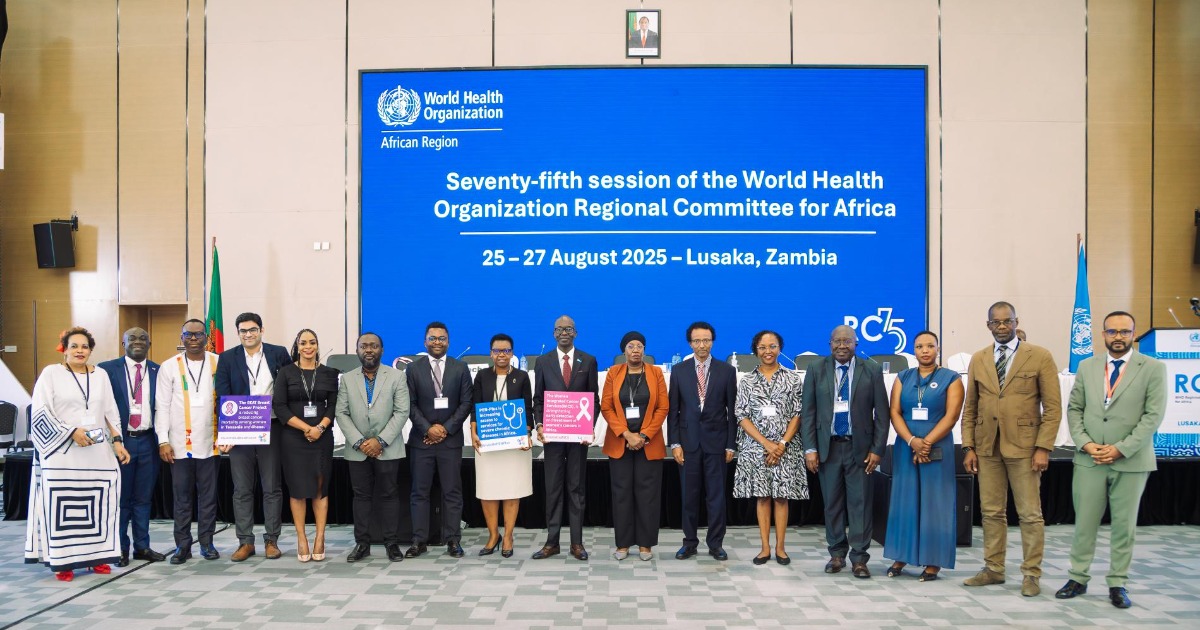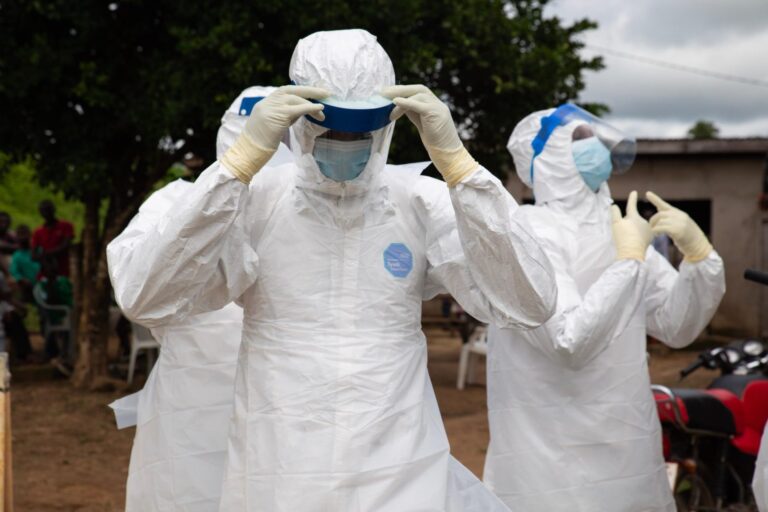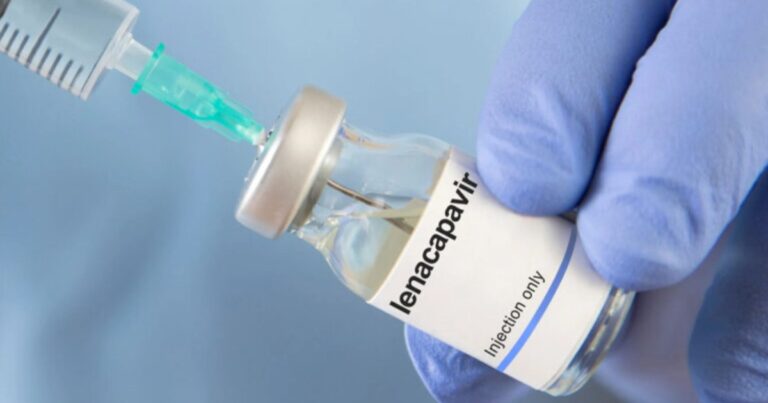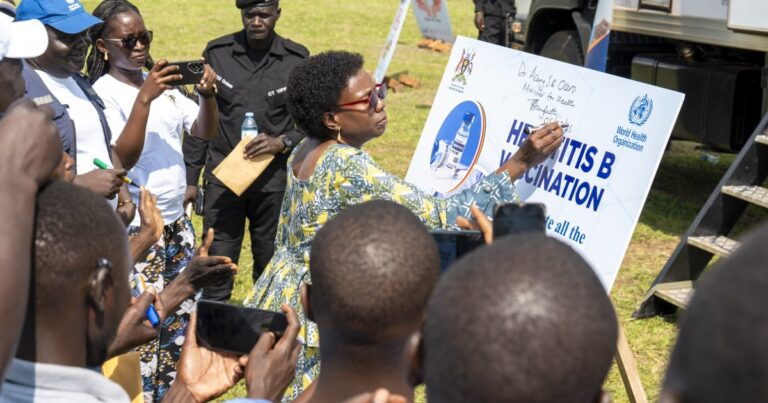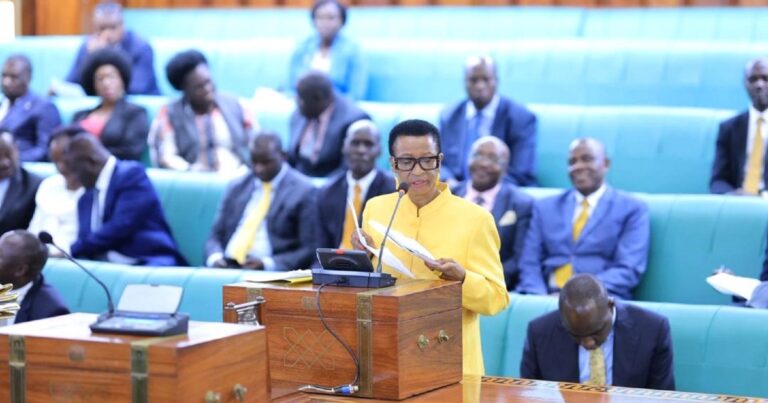African health ministers and development partners are calling for a renewed commitment to tackle the rising burden of noncommunicable diseases (NCDs) across the continent, with a focus on equitable and integrated healthcare solutions. This call to action came during a high-level side event at the Seventy-fifth session of the WHO Regional Committee for Africa.
A Growing and Unequal Burden
NCDs such as cancer, diabetes, heart disease, and sickle cell disease continue to claim hundreds of thousands of lives across Africa—often silently and disproportionately affecting women, children, and underserved populations. Cervical cancer remains the leading cause of cancer death among women in sub-Saharan Africa, despite being both preventable and treatable. In 2022 alone, Africa accounted for 23% of the 76,000 global cervical cancer deaths.
Other severe NCDs, including Type 1 diabetes and sickle cell disease, impact young people and children in some of the region’s poorest communities, where access to care remains limited or nonexistent. Over 500,000 lives are lost each year to severe NCDs—many of which could be prevented through timely diagnosis, sustained treatment, and improved health system access.
Investing in Integrated, People-Centered Care
To reverse these grim trends, African health leaders are calling for increased investment in integrated health services—particularly at the primary and district hospital levels—to improve prevention, screening, treatment, and rehabilitation for NCDs. Delegates emphasized the need for leadership, governance, and financing to build robust and equitable healthcare systems.
“PEN-Plus, WICS, and the BEAT Breast Cancer Initiative are models for a new standard of care, rooted in equity, access and health justice,” said Dr. Mohamed Janabi, WHO Regional Director for Africa. “I urge countries to prioritize policies that embed these models into broader health system strengthening.”
Breakthrough Initiatives Leading the Way
The WHO and its partners presented successful case studies that are already transforming care for women and marginalized populations:
- Women’s Integrated Care for Cancer Services (WICS): Operating in Côte d’Ivoire, Kenya, and Zimbabwe, WICS integrates breast and cervical cancer services into national primary healthcare systems. In Côte d’Ivoire, over 3 million girls (91.4%) have received the HPV vaccine, and community-based screenings are helping improve early detection rates.
- BEAT Breast Cancer Project: This transformative initiative is working to reduce breast cancer mortality in Tanzania and Ghana by focusing on early detection, timely diagnosis, and comprehensive treatment for women, especially in rural and low-resource settings.
- PEN-Plus Strategy: PEN-Plus expands access to care for severe NCDs at district hospital level. Since its rollout, 20 countries in Africa have introduced services for chronic conditions. More than 15,000 patients, including children with Type 1 diabetes and sickle cell disease, are now receiving regular, life-saving care.
A Moment for Momentum
“This gathering marks a pivotal moment to accelerate action for breast cancer prevention in Africa,” said Dr. Somesh Kumar, Senior Director at Jhpiego. “We deeply value the leadership of the Ministries of Health of Ghana and Tanzania, and the steadfast support of the Pfizer Foundation in helping us reach this milestone.”
The event highlighted the need to embed women’s cancer initiatives into national health strategies, while also building stronger partnerships to expand infrastructure, diagnostics, workforce capacity, and service delivery across the continent.
Looking Ahead
Africa stands at a critical stage. The cost of inaction is high—but so is the potential for impact. With strategic investment, policy prioritization, and collaboration, noncommunicable diseases can be prevented, managed, and even eliminated as major causes of death and disability in Africa.
The path forward demands not just more funding, but smarter, more integrated healthcare solutions that meet people where they are—especially in the most vulnerable and underserved communities.

